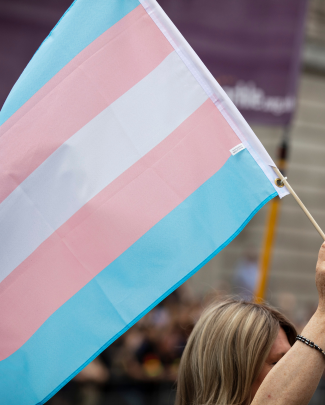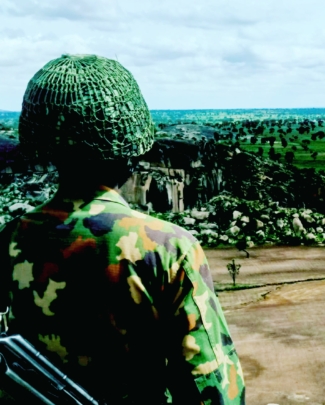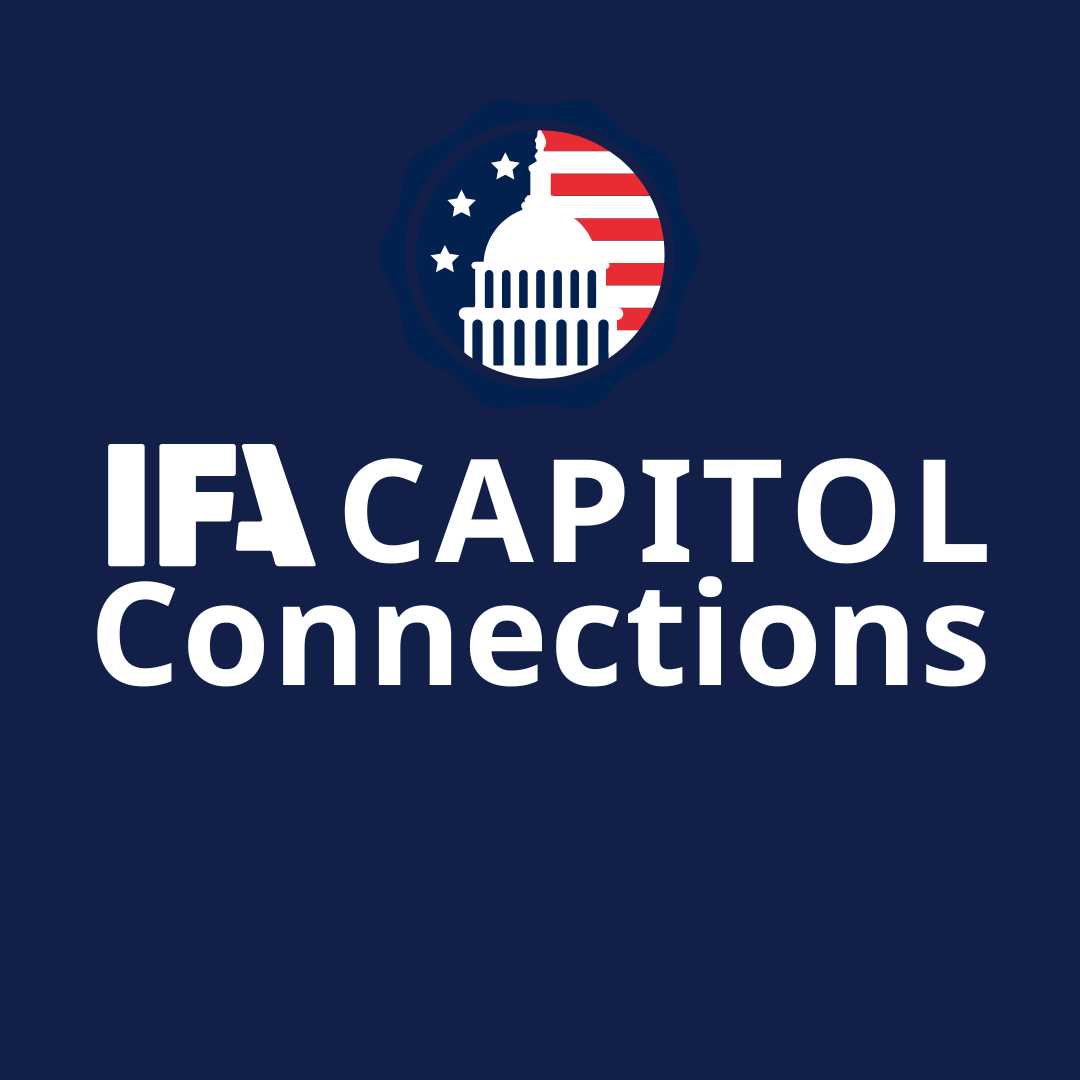GEORGE WASHINGTON: “AN INSTRUMENT IN THE HANDS OF PROVIDENCE”
THE LIST OF UKRAINE CONNECTIONS KEEPS GETTING LONGER
VA HOUSE PASSES BILL TO UPSET ELECTORAL COLLEGE
TRUMP DOWNSIZES NATIONAL SECURITY COUNCIL FURTHER
21 MARGARET SANGER QUOTES PLANNED PARENTHOOD DOESN’T WANT YOU TO HEAR
GEORGE WASHINGTON: “AN INSTRUMENT IN THE HANDS OF PROVIDENCE”
George Washington is one of the most significant men in all of history. Regarding the direct advancement of civil and political liberty in the earth, he may well be the most significant champion in all history. Certainly he was the central figure of bringing a new era of liberty to the world in modern times. Abraham Lincoln observed:
Washington is the mightiest name of earth —long since mightiest in the cause of civil liberty, still mightiest in moral reformation. On that name no eulogy is expected. It cannot be. To add brightness to the sun or glory to the name of Washington is alike impossible. Let none attempt it.1
Founding Father Fisher Ames said that Washington changed the standard of human greatness.2 One biographer wrote, “Washington was without an equal, was unquestionably the greatest man that the world has produced in the last one thousand years.”3 Thomas Paine observed: “By common consent, Washington is regarded as not merely the Hero of the American Revolution, but the World’s Apostle of Liberty.”4
A figure in history like Washington did not just arise by happenstance. It was the near unanimous consent of early Americans that Washington, like Esther of old, had “come to the Kingdom for such a time as this.”
After Washington’s death hundreds of commemorative orations were given all over the United States. Nearly all of them declare that Washington was a gift of God to the American people and to all of mankind. Some mention this in passing, many with this as the dominant theme. Washington is called the Moses of the American people, the Joshua who led his people into the promised land, and the savior of his country.
In his sermon “On the Death of George Washington,” Rev. Jedidiah Morse concluded his comparison of Moses and Washington by saying:
Never, perhaps, were coincidences in character and fortune, between any two illustrious men who have lived, so numerous and so striking, as between Moses and Washington. . . Both were born for great and similar achievements; to deliver, under the guidance of Providence, each the tribes of their respective countrymen, from the yoke of oppression, and to establish them, with the best form of government and the wisest code of laws, an independent and respectable nation.5
General Morgan, who fought alongside Washington during the Revolutionary War, acknowledged that Washington was key for obtaining independence, relating that while there were many officers with great talents, he was “necessary, to guide, direct, and animate the whole, and it pleased Almighty God to send that one in the person of George Washington!”6
President Calvin Coolidge summed up Washington’s contribution to mankind, under the Providence of God, in a speech to Congress:2
Washington was the directing spirit without which there would have been no independence, no Union, no Constitution and no Republic. His ways were the ways of truth. His influence grows. In wisdom of action, in purity of character he stands alone. We cannot yet estimate him. We can only indicate our reverence for him and thank the Divine Providence which sent him to serve and inspire his fellow men.7
Washington’s contribution to the birth of America and the advancement of liberty in the world is unsurpassed by any man. Without Washington, America would not have won the Revolution. He provided the leadership necessary to hold the troops together, even in the most difficult situations. As one contemporary observed, Washington was “that hero, who affected, with little bloodshed, the greatest revolution in history.”8 Due to Washington’s influence, America avoided a monarchy or military rule — he rebuffed an attempt to make him King; he thwarted a military coup; and he set an example of civilian rule by resigning as Commander-in-Chief. The Constitutional Convention would not have succeeded without Washington’s influence as President of that body. America may never have set into motion her constitutional form of government, with a limited role of the President, without his example, for the unanimously elected Washington modeled how the President was to govern. Washington also set the standard for American international relations in his Farewell Address.
There would be no America, the land of liberty, without Washington, the apostle of liberty. The unique freedom, justice, and virtue incorporated into the American Republic have in the last two centuries spread throughout the world and taken root in many nations. Hence, Washington’s legacy has impacted the world, and will continue to do so for centuries to come.
His greatness did not stem from oratorical skills or superior knowledge or brilliant military tactics, but rather from his strong virtues, sense of duty, and invincible resolution. When he was offered leadership of the army and leadership of the nation, he expressed doubts in his abilities to accomplish these tasks, but once he occupied those positions, nothing could stop him from performing his duty. By sheer force of character he held the disorganized nation together during the great struggle for independence, and after victory was won, the love of the people for him provided the unifying factor necessary to set a course for the American constitutional republic.
The providence of God and Washington’s Christian faith were key to his character, career, and accomplishments. His faith, heart, and humility are revealed in the “Circular to the Governors of the states” in 1783 when he prayed that God would protect them and “most graciously be pleased to dispose us all to do justice, to love mercy, and to demean ourselves with that charity, humility, and pacific temper of mind, which were the characteristics of the Divine Author of our blessed religion, and without an humble imitation of whose example in these things, we can never hope to be a happy nation.”9
In his famous “Oration on the Death of General Washington,” Gen. Henry Lee said that Washington was “first in war, first in peace, and first in the hearts of his countrymen.” “Vice shuddered in his presence, and virtue always felt his fostering hand; the purity of his private character gave effulgence to his public virtues.” Washington was first because, as Lee said, he was “the man designed by Heaven to lead in the great political, as well as military, events which have distinguished the area of his life. The finger of an overruling Providence pointing at Washington was neither mistaken nor unobserved.”103
Washington himself had a sense of how God used him providentially to advance the cause of liberty to mankind as well as an understanding of the providential purpose of America, writing in March 1785:
At best I have only been an instrument in the hands of Providence, to effect, with the aid of France and many virtuous fellow Citizens of America, a revolution which is interesting to the general liberties of mankind, and to the emancipation of a country which may afford an Asylum, if we are wise enough to pursue the paths wch. lead to virtue and happiness, to the oppressed and needy of the Earth.11
America set in motion a new example of religious, civil, and economic liberty that the nations have attempted to embrace during the last two centuries. The advancement of liberty in the world is directly related to the establishment of liberty in America, which owes its beginnings in large part to George Washington. Paine’s epithet of “World’s Apostle of Liberty” is, therefore, most fitting. Americans and citizens of the world who value liberty must forever keep alive in their hearts this great man and seek to follow his example.
This article is taken from Apostle of Liberty: The World-Changing Leadership of George Washington by Stephen McDowell. This book can be ordered from the Providence Foundation,
End Notes
1. Lucretia Perry Osborn, Washington Speaks for Himself (New York: Charles Scribner’s Sons, 1927), xi.
2. Works of Fisher Ames, as published by Seth Ames (1854), edited and enlarged by W.B. Allen, vol.1 (Indianapolis: Liberty Classics, 1983), 527.
3. William Wilbur, The Making of George Washington (DeLand, Florida: Patriotic Education, 1973).
4. “George Washington: Deist? Freemason? Christian?” by James Renwick Manship, in Providential Perspective, Vol. 15, No. 1, Feb. 2000, Charlottesville: Providence Foundation.
5. Jedidiah Morse, “A Prayer and Sermon, Delivered at Charlestown, December 31, 1799, On the Death of George Washington . . . With an Additional Sketch of His Life” (London: Printed by J. Bateson, 1800), 28.
6. Recollections and Private Memoirs of the Life and Character of Washington by George Washington Parke Custis, Benson J. Lossing, editor, (Philadelphia: Englewood, 1859), 322.
7. Osborn, p. iv. A facsimile of the peroration of President Coolidge’s Address to the Sixty-ninth Congress, Second Session, on Washington’s Birthday, February 22, 1927.
8. Letter of Dr. Letsom of London to a friend in Boston, in E. C. M’Guire, The Religious Opinions and Character of Washington (New York: Harper & Brothers, 1836), 326.
9. Circular to the States, June 8, 1783, The Writings of George Washington from the Original Manuscript Sources, 1745-1799, John C. Fitzpatrick, Editor (Washington: United States Government Printing Office, 1931), 26:496.
10. “Oration on the Death of General Washington, Pronounced before Both Houses of Congress, on December 16, 1799” by Major-General Henry Lee, in Custis, 622, 618-619.
11. Letter to Lucretia Wilhemina Van Winter, March 30, 1785, The Writings of George Washington, 28:120.
(Used with permission from Providence Foundation. Article by Steven McDowell.)
Partner with Us
Intercessors for America is the trusted resource for millions of people across the United States committed to praying for our nation. If you have benefited from IFA's resources and community, please consider joining us as a monthly support partner. As a 501(c)3 organization, it's through your support that all this possible.


We use cookies to ensure that we give you the best experience on our website. If you continue to use this site we will assume that you are happy with it. Privacy Policy




Comments
Father, In all times YOU raise up mighty men and women to accomplish Your purposes! We praise and thank You for the miracles wrought upon the earth by Your children, through Your great power and authority. Father thank You for the creation of America with such beautiful and high virtues. We have fallen, Lord from the vision You had for us and that You brought to birth through Washington and his leadership. Father, rise again such people of strength, humility and virtue that America may be reestablished according to Your will and purposes in this day. Rise up Godly leaders in every state, every legislature, every home, business and in our national capitol, Washington DC, that again that which You treasure and You value will be manifest in this country. Rule and reign over us Mighty God! Only You are able to transform us, and we place our future in Your Good hands, knowing You are able to do infinitely, abundantly more than we can ask or imagine! Be glorified again in this country! You and You alone are God!
Isn’t it interesting how far our country has declined since it’s beginning. Someone sent me a poem that explains so much about our country-
A few years after I was born, my Dad met a stranger who was new to our small town From the beginning, Dad was fascinated with this enchanting newcomer and soon invited him to live with our family.
The stranger was quickly accepted and was around from then on. As I grew up, I never questioned his place in my family. In my young mind, he had a special niche. My parents were complementary instructors: Mom taught me good from evil, and Dad taught me to obey. But the stranger….was our storyteller.
He would keep us spellbound for hours on end with adventures, mysteries and comedies. If I wanted to know anything about politics, history or science, he always knew the answers about the past, understood the present and even seemed able to predict the future!
He took my family to the first major league ball game. He made me laugh, and he made me cry.
The stranger never stopped talking, but Dad didn’t seem to mind. Sometimes, Mom would get up quietly while the rest of us were shushing each other to listen to what he had to say, and she would go to the kitchen for peace and quiet. (I wonder now if she ever prayed for the stranger to leave.)
Dad ruled our household with certain moral convictions, but the stranger never felt obligated to honor them. Profanity, for example, was not allowed in our home -not from us, our friends or any visitors.
Our long time visitor, however, got away with four-letter words that burned my ears and made my dad squirm and my mother blush. My Dad didn’t permit the liberal use of alcohol but the stranger encouraged us to try it on a regular basis. He made cigarettes look cool, cigars manly, and pipes distinguished.
He talked freely, much too freely about sex. His comments were sometimes blatant, sometimes suggestive, and even embarrassing. I now know that my early concepts about relationships were influenced strongly by the stranger. Time after time, he opposed the values of my parents, yet he was seldom rebuked… And NEVER asked to leave.
More than fifty years have passed since the stranger moved in with our family. He has blended right in and is not nearly as fascinating as he was at first. Still, if you could walk into my parents’ den today, you would still find him sitting over in his corner, waiting for someone to listen to him talk and watch him draw his pictures.
His name?….
We just call him ‘TV.’